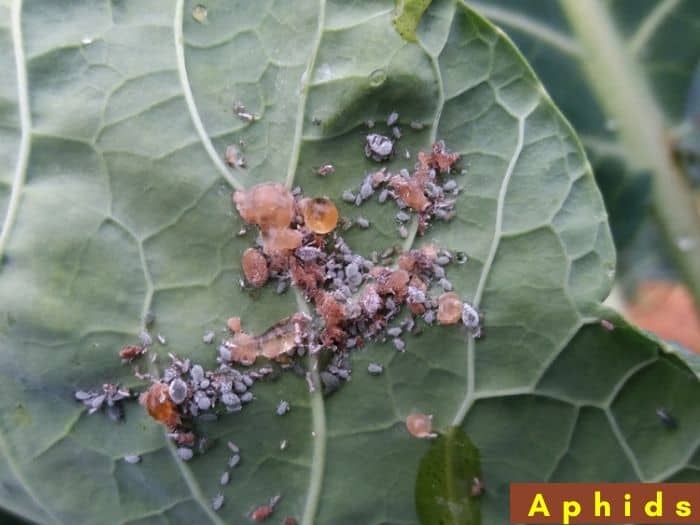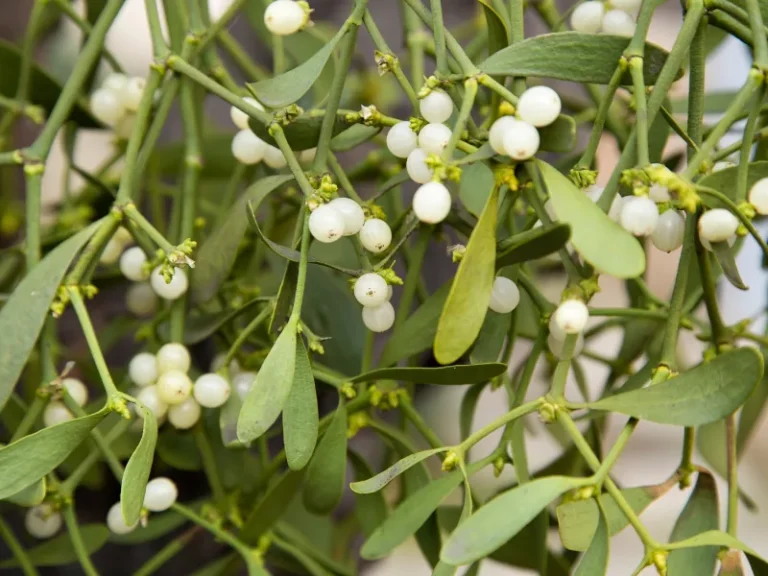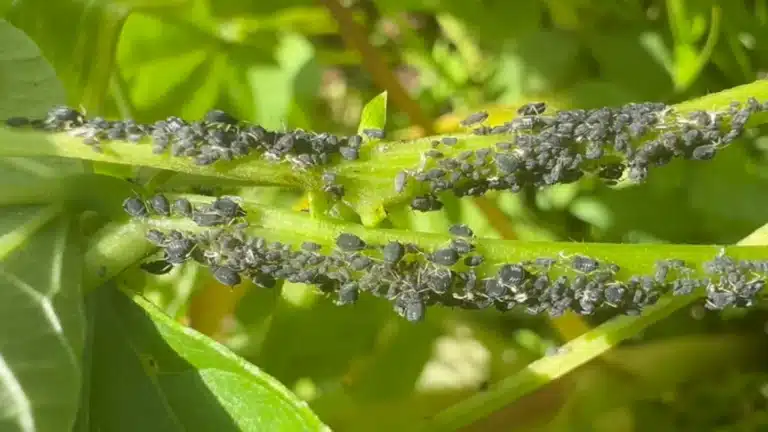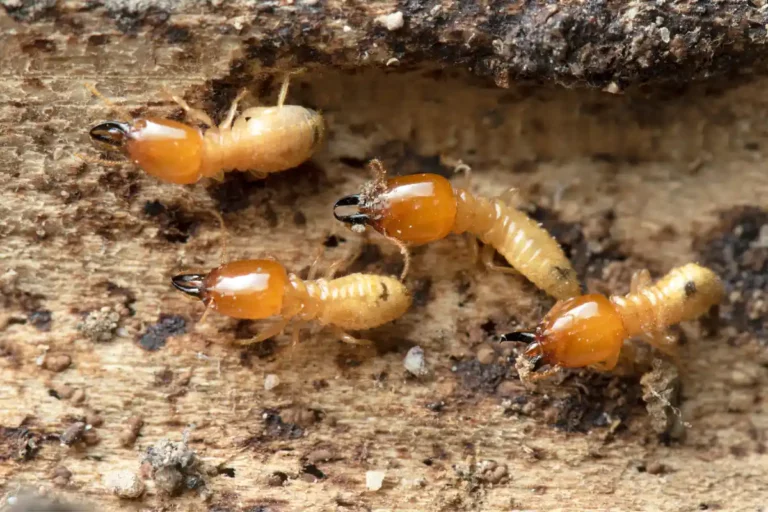How to Use Natural Vinegar Spray for Aphids
Aphids infest plants in colonies and can cause severe symptoms such as stunted growth, curling leaves, leaf mottling, and yellowing. These pests feed on indoor and outdoor plants, leaving a sticky black substance on leaves, stems, and buds. If your plants are infested, you can get rid of aphids with a simple natural remedy – vinegar spray.
Mix white vinegar with water in a ratio of 1:3 to make a vinegar solution. Pour it into your garden sprayer and spray the infested plants, covering the undersides of leaves and stems where aphids like to hide. Repeat this vinegar natural aphid spray after a week to completely eliminate the pests.
Aphids have small bodies about 1/18 inches ranging from yellow, brown, red, green, or black. Although you can use other natural aphid control pesticides like Neem Oil Spray to treat your plants, if you have vinegar in your kitchen, it’ll make a great homemade aphid spray to fix the problem.
Check out the precautions of this pest solution discussed below in this article.
Does vinegar get rid of aphids?

Vinegar kills aphids by working as a natural contact pesticide that burns them to death. The solution contains acetic acid and water that, when sprayed on an infested plant, will help control the aphids. It works by clogging up the pores through which the aphids breathe.
Since it’s a biopesticide (not chemically processed), vinegar is a safer natural pest alternative to chemical pesticides.
How to Use Vinegar as a Natural Aphid Spray
Aphids are slow-moving green/black-colored insects that like to invade garden plants such as hibiscus and pothos, small trees, and kales, causing extensive damage to stems, leaves, and buds. Once you identify these pests, you can apply a vinegar solution as an aphid killer.
Here’s how to make a natural homemade aphid spray with vinegar:
- Pour 1 oz of vinegar into a small bucket.
- Add 3 oz of distilled water into the bucket.
- Stir to mix the two ingredients to make a vinegar solution.
- Pour the solution into your garden spray pump.
- Spray the aphids on the infested plants to kill them.
- Repeat this treatment after one week to get rid of any remaining pests.
I use and recommend the ISTILL Garden Pressure Sprayer Pump for your gardening tasks. It produces variable jets and mists with great coverage, so getting rid of aphids, thrips, and mealybugs will be easy.
Caution: Dilute vinegar to ensure it does not desiccate and cause injury to your plants. Using vinegar at a high concentration is likely to cause browning on leaves and even stun the plant.
It’s best to spray a very dilute vinegar solution a few times to get rid of aphids and other pests on your plants than to use a concentrated solution that will cause harm to your plant.
Alternative ways to control aphids naturally
Some plants are sensitive to the acidity of the vinegar. I recommend you try the following natural alternatives to eliminate aphids on your plants.
Vinegar + castile soap recipe
While vinegar is already strong enough to kill aphids, you can make an even more powerful vinegar-based pesticide recipe by combining it with castile soap. The soap contains strong chemical compounds that can also kill aphids.
Here’s how to make a vinegar aphid pesticide with castile soap:
- Mix a spoonful of castile soap with a gallon of water in a bucket.
- Add a spoonful of white vinegar to the bucket and stir the mixture.
- Transfer the solution into your garden spraying container.
- Spray the vinegar solution onto the aphids on the affected foliage.
- Rinse excess castile soap from the plants with water from a garden hose.
Aphids like to hide on the underside of the leaves, so that’s where you should target when spraying the natural vinegar solution to kill as many of them as possible.
Dislodge aphids with water
You can also dislodge aphids using water at high pressure on outdoor and indoor trees and plants. Simply direct water from a garden hose onto the stems and leaves infested with aphids to dislodge them.
On the ground, aphids take long to climb up the plant and can easily die in the process or get preyed on by predators such as ants and spiders.
Sometimes spraying the plants with water will dislodge the aphids off the plants, but they can come back. A more permanent solution is chemical pesticides, but these have the potential to harm the handler, the environment, and the soil.
Diatomaceous earth
Diatomaceous earth is a non-toxic pesticide that contains high concentrations of silica. According to the University of Minnesota Extension, diatomaceous earth kills soft-bodied insects such as thrips, mealybugs, and aphids by drying their bodies. However, the leaves must be dry for the dust to work.
To kill aphids, dust the infested plants with diatomaceous earth, covering all the surfaces to ensure they come into contact with the natural pesticide. The insects will fall off and die within 10-12 hours.
Safety and mixing ratio
While vinegar is great for killing plant insect pests such as aphids, it can be dangerous to if not used properly.
Some plants are highly sensitive to vinegar’s acidity. Therefore, test the plants by spraying a little vinegar solution on the afflicted foliage to see its reaction. Apply the solution to the remaining plant parts if there’s no reaction.
Never spray undiluted apple cider vinegar directly onto your garden plants. Derived from fermented apple juice, the acidic substance could prove harmful to your plants’ foliage when used in excess.
Dilute vinegar with water in a 1:3 ratio to create an apple cider vinegar solution. It’s this solution that you can safely spray onto your plants. And even then, you should still take care not to overspray or spray too often.
Precautions when using vinegar
While natural vinegar can kill aphids from houseplants, some plants are sensitive to their acidity. Test the plants by spraying vinegar on a small part of infested foliage to see its reaction. If there’s no change, the solution is safe for use.
Treat the aphids-infested plant by spraying natural vinegar on the leaves and stems.
Vinegar solution is safe for pets and humans since it doesn’t burn if it accidentally falls on the skin. Since vinegar is a biopesticide, it doesn’t contain dangerous chemicals like chemical pesticides. Besides, the vinegar’s scent doesn’t irritate.



![How to Get Rid of White Fuzzy Mold on Plants [Powdery Mildew]](https://gardenine.com/wp-content/uploads/2021/04/White-fuzzy-mold-on-plants-powdery-mildew.jpg)

